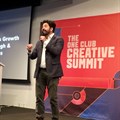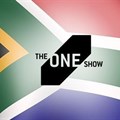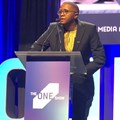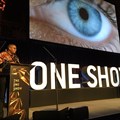#AfricaMonth: Embrace our story, bring South Africa and our continent to the world
Here, Dyeshana explains how to do so in sharing exclusive insights from attending this year’s One Club Creative Week, such as what’s spurring the current unorthodox approach to advertising and communications and the opportunity we can embrace in the constant move towards working in new spaces and new mediums, which requires new behaviours from brands and advertisers…
It’s a plethora of events and seminars that take place over the week, but I particularly enjoy their focus on the young people with the Young Guns Portfolio reviews and the specialised awards at One Club’s Art Directors’ Club (ADC) and One Show Awards. I’m glad we finally have time to touch base. Share your highlights from the One Club for Creativity’s Creative Week 2019.
I’m glad we finally have time to touch base. Share your highlights from the One Club for Creativity’s Creative Week 2019.
Yes, it’s always a highlight of my creative year to attend the One Club for Creativity’s Creative Week, held in New York in May. It’s a creativity overload, an explosion of inspiration.
So on the actual work that won, it was refreshing to see that it was widespread in terms of the categories and that we excelled in the film and video categories once again. It was also a good spread of agencies across a good spread of categories. Comment on SA’s One Show wins this year.
Comment on SA’s One Show wins this year.
First, a caveat that I had to offer some insight to explain to the Board, the fact that South Africa’s entries as a country were slightly down this year over previous years. The main reason is of course that we’re coming out of a very tough economic moment, with recession woes hitting hard last year. Just generally, from a marketing point of view, there’s been a lot of cutting back on spend. So while we had a smaller winner pool this year, that’s from a smaller entry pool overall.
Some of the concerns are that we’re still not breaking through at the One Show in a category that we pretty much dominate when it comes to Cannes Lions, which is radio and audio. For some reason, we’ve just never had the same impact when it comes to One Show. That’s a collective challenge for us going forward.
 As #AfricaMonth is coming to an end it’s always a good time to assess the calibre of SA’s creativity. Talk us through current global trends that came up from the summits/workshop sessions and the current global state of creativity, and how we differ here in Africa.
As #AfricaMonth is coming to an end it’s always a good time to assess the calibre of SA’s creativity. Talk us through current global trends that came up from the summits/workshop sessions and the current global state of creativity, and how we differ here in Africa.
One thing you can’t help but notice when it comes to where the world is starting to go is that people are starting to do work that really goes beyond just advertising.
It really is about harnessing everything we have at our disposal, which already goes far beyond your traditional mediums, in terms of the spaces where brands can play. And so, what I’m starting to see from an international point of view is how a lot of brands are starting to embrace that, and almost starting to see how they can be part of the societal conversation, part of something bigger than just serving the mere interest of selling their brand.There’s a huge move towards embracing new spaces and new mediums that require new behaviours from brands and advertisers. Where they’ve gotten that right, the results have been absolutely incredible.
From a local point of view, that’s a great opportunity for us. A lot of this kind of work, while selling products is also making significant progress for some challenged economies and geographies around the world.
If you look at that, it places South Africa in a space where we should be able to thrive if we take advantage of this, because we have our own challenges, which are unique to us. It would be interesting to see how we can use the might of brands to start to have a voice and give a voice to people and solutions that move us forward, not just sell product.
We are having to tailor our messages in a way that people will want to choose us, as opposed to them being forced to consume us. That, for me, is what is spurring this amazing, unorthodox approach to advertising. So you’re seeing a big tie in with brand humanity?
So you’re seeing a big tie in with brand humanity?
Absolutely. Conscious consumption is definitely on the rise. That’s not just consumption of product but also the consumption of communication. When we caught up after One Show last year, you said to get inspired by an unorthodox approach to ideas. Is that still a strong sentiment?
When we caught up after One Show last year, you said to get inspired by an unorthodox approach to ideas. Is that still a strong sentiment?
Definitely, it completely goes with my previous response. This world that we’re stepping in, where we’re trying more and more to almost find a space in people’s conversations requires us to have a completely different approach.People are becoming more and more adverse to crass selling and crass branding.
Advertisers and marketers are having to be a lot more in touch and in tune with what people are interested in, especially when it comes to how people are consuming communication, because more than ever, people have a choice.
But nobody wants to feel like a number, and some of the advantages of technology, data and AI is that it allows you to individualise communication, albeit at scale, to be more targeted and nuanced when speaking to different audiences. Speaking of unorthodox, Joe Public’s ‘Sbu 2.0’ for Chicken Licken comes to mind. When we last chatted, after Joe Public were announced as Ciclope Africa Festival's agency of the year, you spoke of the importance of tapping into the zeitgeist of AI in advertising for Africa. Elaborate on how marketing and creative agencies can better do so in their work going forward.
Speaking of unorthodox, Joe Public’s ‘Sbu 2.0’ for Chicken Licken comes to mind. When we last chatted, after Joe Public were announced as Ciclope Africa Festival's agency of the year, you spoke of the importance of tapping into the zeitgeist of AI in advertising for Africa. Elaborate on how marketing and creative agencies can better do so in their work going forward.
It’s an ongoing goal because AI is changing and improving almost daily. So the biggest thing is for us to really challenge the way we work, in the context of how we’re using the technology and data that’s at our disposal to inform how we can do things differently.
With that said, I think that AI and technology is worth very little if not used together with and to support strong ideas. At the end of the day, the idea is still king. AI and technology as a means to an end or an end to itself is pretty much worthless.
More and more, especially in countries with developing economies that are similar to us, we’re seeing that they don’t shy away from who they are. Just like us, many of them have world-class ideas. But when you look at those ideas, they’re imbued with the identity of the area they come from. We could do a lot more to embrace our story, and bring our South Africa and our continent to the world. Let’s end with any other tips to enhance Africa’s creativity.
Let’s end with any other tips to enhance Africa’s creativity.
I still feel that we are not embracing our own stories enough. A lot of what we’re putting out to the world could actually come from many different parts of the world. That’s absolutely OK in terms of the quality and calibre of the ideas, but what I feel is missing is a home-grown approach, aesthetic and perspective to the work that we’re doing.
Lots to soak up and learn from as we gear up for Cannes Lions and the Loeries. Follow Dyeshana on Twitter and visit our One Show special section for the latest updates!




















































